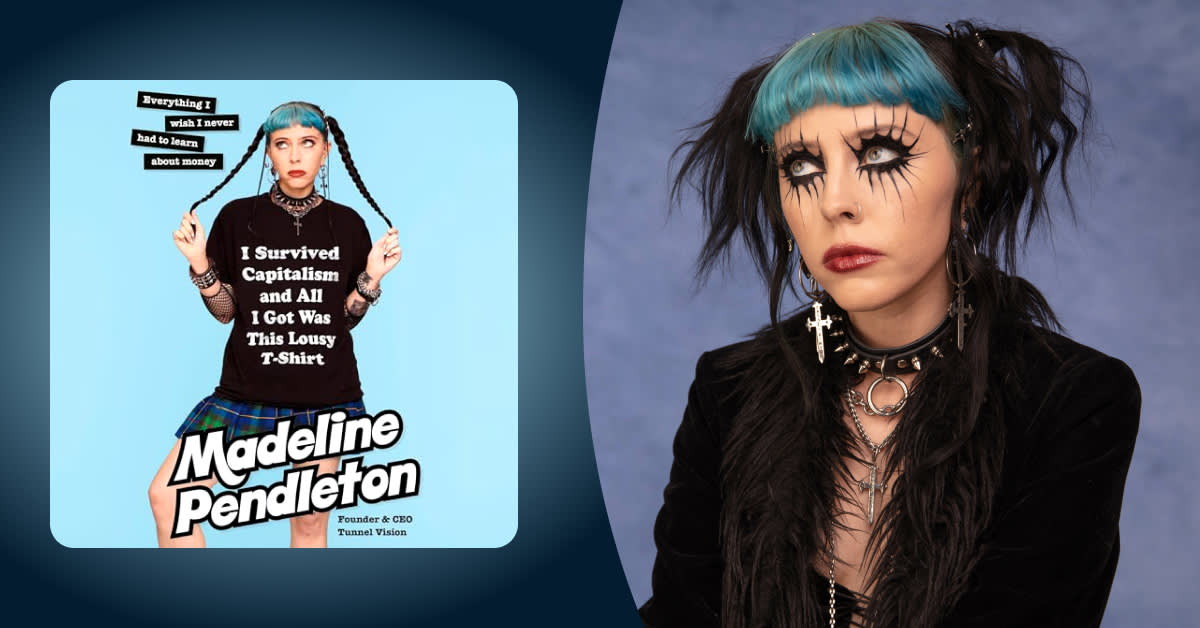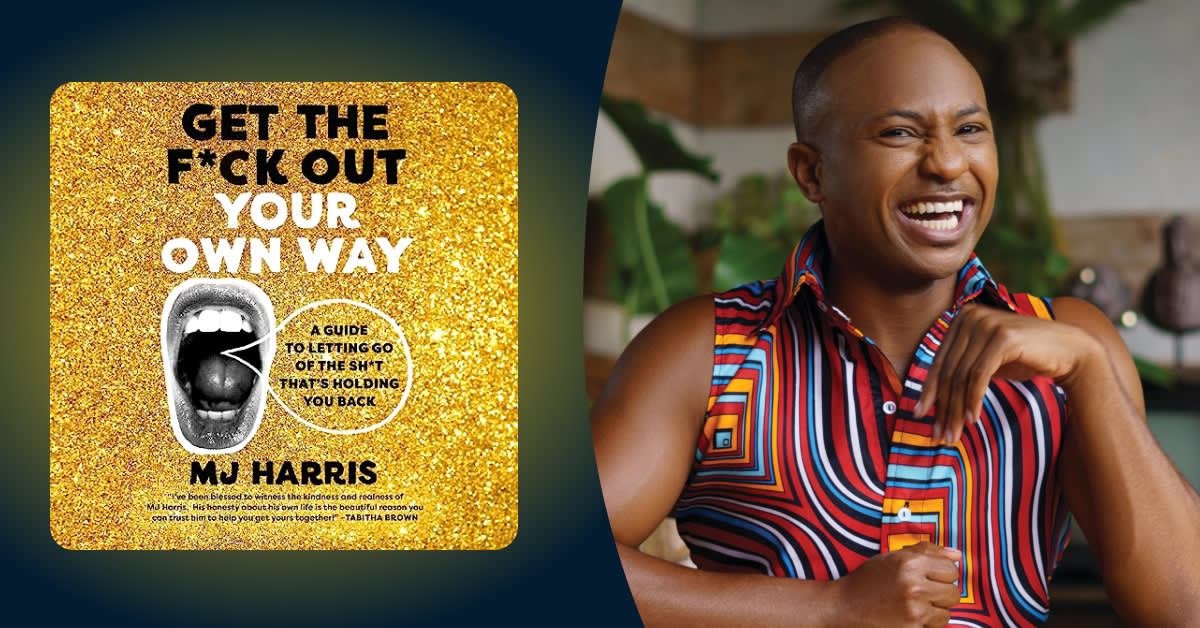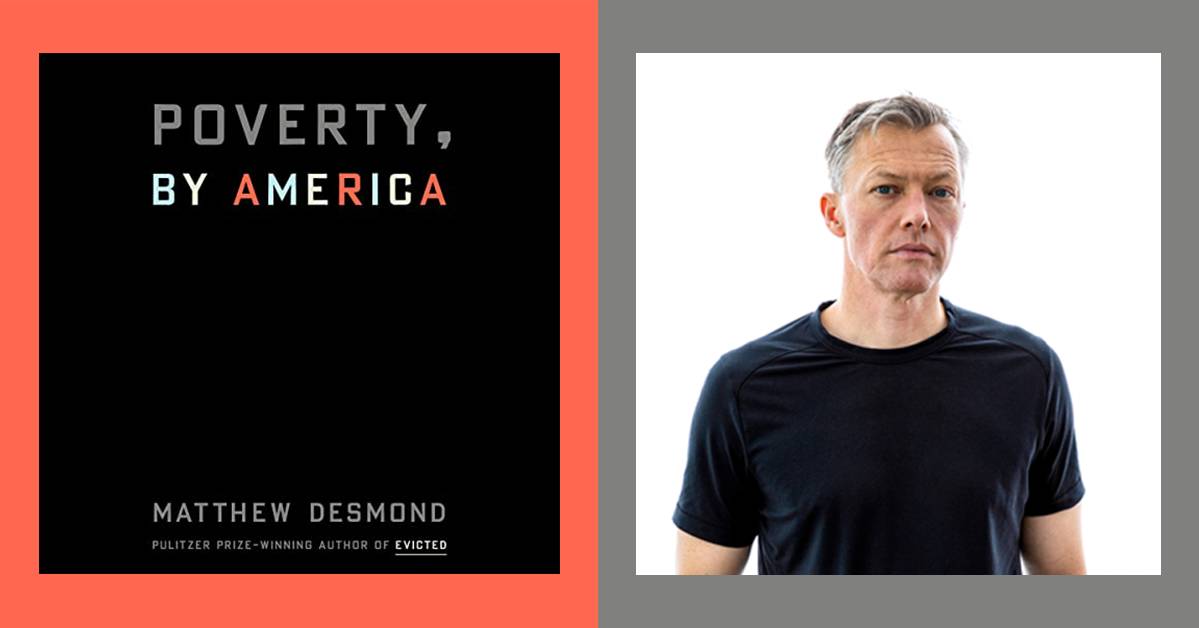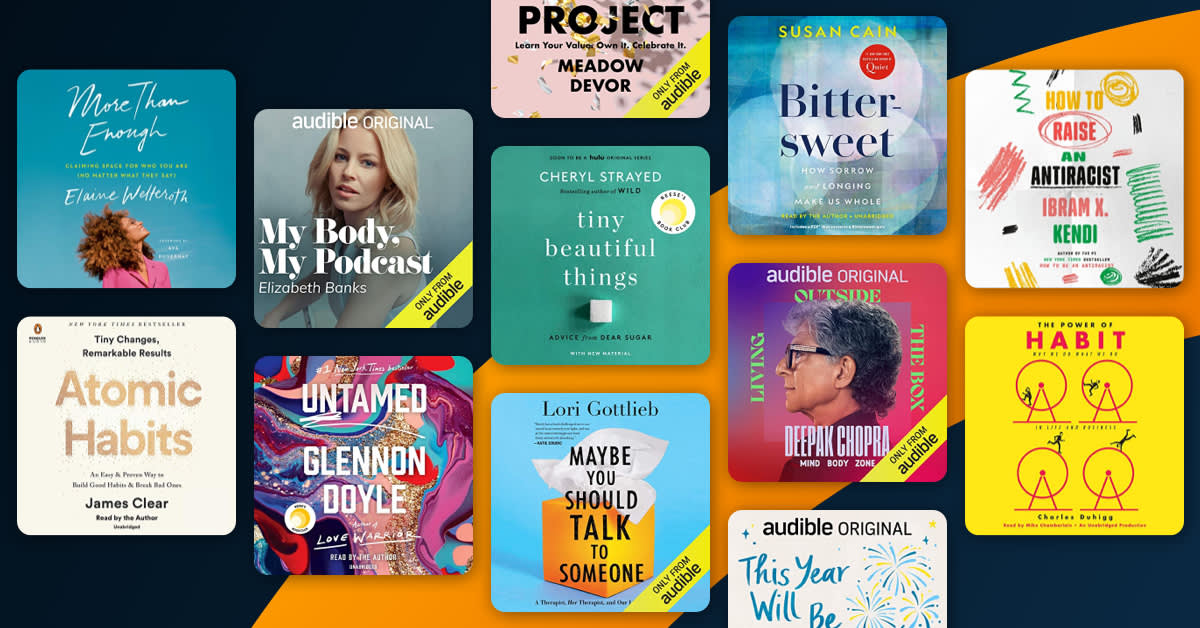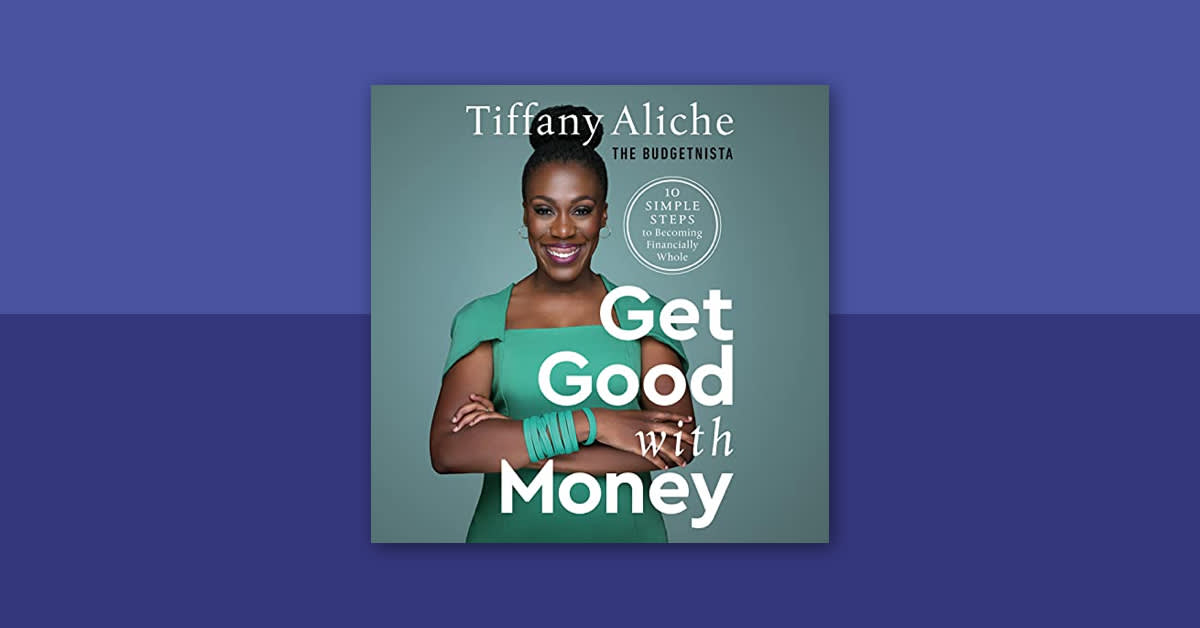As one of Madeline Pendleton’s many followers, I’m captivated by her unique business approach and commanding presence on TikTok. In her new and deeply personal memoir I Survived Capitalism and All I Got Was This Lousy T-Shirt, Madeline shares how her relationship to capitalism has shaped not only her business, but every defining moment in her life. In this Q&A, Madeline dives deeper into why she’s chosen to share her story and perspective now, and the emotional toll of performing in audio.
Rachael Xerri: In your own words, how would you describe your personal philosophies around business and life?
Madeline Pendleton: Our workplaces are really the start of so many of the social, political, and economic issues we face on the day-to-day in our country. When we talk about poverty, inequality, health care access, and more, we're really talking about the relationship the average person has with their job. I think it's easy to forget that, or to reduce our understanding of business to a profit-and-loss statement wherein the most important element of running a business "the right way" is just maximizing profit for the business owners. When doing that, worker pay becomes a line item on the P&L to be cut.
There's something so barbarically cruel about this type of thinking, and we've really normalized it as a culture—even lauding business owners or CEOs for running a "tight ship" when they fire workers or cut pay. What we see, though, is that taxpayers are often subsidizing these pay cuts and layoffs through social safety net spending. In 2020, for example, nearly 15,000 employees of one famous big-box chain store were on food stamps (EBT), meaning that American taxpayers were effectively subsidizing their low pay even while that company posted over $100 million of profit that same year. It's unsustainable. We're allowing these major corporations to underpay their workers and overpay their leaders, to the extent that we are all expected to pick up the bill. Life is getting less and less affordable for the average worker, and that's directly the result of their pay in the workplace. The profits that should be used to increase worker pay are instead going to pad owners' and CEOs' pockets.
I always say that the average worker isn't asking for much. They just want to be able to afford food, rent, and health care—and their places of employment are falling short. Most people don't want to live an exorbitant lifestyle. When people demand things like a $15 national minimum wage, they're really just asking to be able to pay their bills and survive, and we should be more shocked that these companies are refusing to pay that. We need to view the actions of these owners and CEOs as theft, because at the end of the day they are stealing worker wages to keep for themselves, and it is costing all of us money. I try to view business more from the vantage point of the worker. This is a means to earn a living, and we're all in it together.
As the owner of the clothing company Tunnel Vision, how do you incorporate your beliefs into practice and what are some of the benefits for you and the people you employ?
The most famous thing we do at our company is a company-wide universal wage. Everyone at our business—from me down to an intern—earns the same pay for a day worked. It's not a ton of money. I think according to HUD data for our county we're all in the low end of a middle income. However, it's enough and that's really a guiding principle behind how our business operates.
The company also pays 100 percent of everyone's health insurance, and even gives everyone equal access to things like our company credit card's free airline miles to book things like vacations. We take a lot of vacations, too, because we have unlimited paid time off. I always say it's not in the sketchy tech bro way that's come under fire in recent years. We actually encourage people to take all the time they need. I think most people take 4-6 weeks of vacation every year, then days off for health here and there. Sometimes, though, major life things come up—injuries, personal issues, you name it—and then we've had people take months off with full pay. We view the workplace as a team effort, so we're happy to help cover for each other whenever the need or desire strikes.
We aim to break even rather than profit every year, but one year we accidentally ended up with a lot of profit and we used it to buy everyone who worked at the company a new car. When profit does exist, we share it. We also have workplace democracy to vote on issues that arise, and an agreement that if the business were to ever sell, every worker would be paid out an equitable amount from the sale.
Something you don’t talk about in length in your videos is your personal life, which is why followers like me are so invested in hearing your memoir. What made you want to tell your story now, and what was it like for you to share it in an audiobook format?
I've always been a bit resistant to discussing my personal life because I don't want to be unfair to others in my storytelling. There's that saying about how there's three sides to every story: yours, mine, and the truth. I always worried that the way I remember my life might not be 100 percent accurate, or might not be the way other people around me remember it, and I've shied away from discussing my memories as a result. I even talked to my dad about this after I wrote the book, and he reminded me that it's my story and of course other people might remember things a little differently, but that's their story.
“There were points in recording the audiobook where I had to take breaks to cry, and I'm not much of a crier typically.”
The subjectivity of our own experiences really did a number on me because I'm typically so committed to facts and evidence. There's no fact-based way to explain a feeling, though, or exactly prove a fleeting memory you have from your childhood. You can see it in the book, I think. I'll talk about a memory I have from my life, then try to support it with facts and figures about what was going on in society around me at the same time. It's my way of validating my own experiences, maybe, but I also think it's my way of trying to relate to other people who had similar experiences—to say this wasn't just me, we all went through this and are trying to cope with it in a variety of different ways.
I always say that I wrote a book not because I'm special, but because I think a lot of people had experiences like mine and we should be talking about it. What I didn't expect was how emotional it would be talking about my life, though. There were points in recording the audiobook where I had to take breaks to cry, and I'm not much of a crier typically. I'm usually described as "tough" or "a fighter," but I fully broke down recalling some of these memories when recording. It was extremely emotional, and it's just a reminder that our relationships with money usually are emotional.
What is it about your story that you hope will resonate most with listeners?
I hope what listeners take away from my story is this: If you feel like life is harder than it should be, you're not imagining it and you're not alone. You're right to be angry that your boss lives in a mansion while you're struggling to afford rent on a studio apartment. You're right to think the for-profit education system is a bit of a scam. You're right to think a system like capitalism that breaks down every few years might not be sustainable long term.
I think the world around us is constantly trying to say that if you're struggling, it's your fault and you just need to work harder. But the reality is that the American worker is more productive now than ever before. We're working harder than we ever have historically in the past. You'll see some anthropologists say medieval peasants had more time off than the average worker in the United States today. We shouldn't be struggling. There's more than enough to go around, and if you're struggling it's probably because someone else is taking more than their fair share.
Is there anything else you’d like to share?
A better world is possible—a more fair and just one. We are right to demand it.
